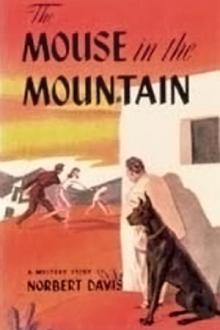El Verdugo - Honoré de Balzac (desktop ebook reader TXT) 📗

- Author: Honoré de Balzac
Book online «El Verdugo - Honoré de Balzac (desktop ebook reader TXT) 📗». Author Honoré de Balzac
DEDICATION
To Martinez de la Rosa.
EL VERDUGO
The clock of the little town of Menda had just struck midnight. At that moment a young French officer, leaning on the parapet of a long terrace which bordered the gardens of the chateau de Menda, seemed buried in thoughts that were deeper than comported with the light-hearted carelessness of military life; though it must be said that never were hour, scene, or night more propitious for meditation. The beautiful sky of Spain spread its dome of azure above his head. The scintillation of the stars and the soft light of the moon illumined the delightful valley that lay at his feet. Resting partly against an orange-tree in bloom, the young major could see, three hundred feet below him, the town of Menda, at the base of the rock on which the castle is built. Turning his head, he looked down upon the sea, the sparkling waters of which encircled the landscape with a sheet of silver.
The chateau was illuminated. The joyous uproar of a ball, the sounds of an orchestra, the laughter of the dancers came to him, mingling with the distant murmur of the waves. The coolness of the night gave fresh energy to his body, that was tired with the heat of the day. Besides which, the gardens were planted with trees so balmy and flowers so sweet, that the young man felt as if plunged in a perfumed bath.
The chateau de Menda belonged to a grandee of Spain, who was at this time living there with his family. During the whole evening, the eldest daughter had looked at the young officer with an interest expressing extreme sadness, and such implied compassion on the part of a Spaniard might well have caused the reverie of the Frenchman. Clara was beautiful; and though she had three brothers and one sister, the wealth of the Marquis de Leganes seemed sufficient to justify Victor Marchand in believing that the young lady would be richly dowered. But could he dare to believe that the daughter of the proudest noble in Spain would be given to the son of a Parisian grocer? Besides, Frenchmen were hated. The marquis having been suspected by General G--t--r, who governed the province, of preparing an insurrection in favor of Ferdinand VII., the battalion commanded by Victor Marchand was quartered in the little town of Menda, to hold in check the neighboring districts, which were under the control of the Marquis de Leganes.
A recent despatch from Marechal Ney made it seem probable that the English would soon land a force upon the coast; and he mentioned the marquis as the man who was believed to be in communication with the cabinet of London. Thus, in spite of the cordial welcome which that Spaniard had given to Victor Marchand and his soldiers, the young officer held himself perpetually on his guard. As he came from the ballroom to the terrace, intending to cast his eye upon the state of the town and the outlying districts confided to his care, he asked himself how he ought to interpret the good will which the marquis never failed to show him, and whether the fears of his general were warranted by the apparent tranquillity of the region. But no sooner had he reached the terrace than these thoughts were driven from his mind by a sense of prudence, and also by natural curiosity.
He saw in the town a great number of lights. Although it was the feast of Saint James, he had, that very morning, ordered that all lights should be put out at the hour prescribed in the army regulations, those of the chateau alone excepted. He saw, it is true, the bayonets of his soldiers gleaming here and there at their appointed posts; but the silence was solemn, and nothing indicated that the Spaniards were disregarding his orders in the intoxication of a fete. Endeavoring to explain to himself this culpable and deliberate infraction of rules on the part of the inhabitants, it struck him as the more incomprehensible because he had left a number of officers in charge of patrols who were to make their rounds during the night, and enforce the regulations.
With the impetuosity of youth, he was about to spring through an opening in the terrace wall, and descend by the rocks more rapidly than by the usual road to a little outpost which he had placed at the entrance of the town, on the side toward the chateau, when a slight noise arrested him. He fancied he heard the light step of a woman on the gravelled path behind him. He turned his head and saw no one, but his eyes were caught by an extraordinary light upon the ocean. Suddenly he beheld a sight so alarming that he stood for a moment motionless with surprise, fancying that his senses were mistaken. The white rays of the moonlight enabled him to distinguish sails at some distance. He tried to convince himself that this vision was an optical delusion caused by the caprices of the waves and the moon. At that moment, a hoarse voice uttered his name. He looked toward the opening in the wall, and saw the head of the orderly who had accompanied him to the chateau rising cautiously through it.
"Is it you, commander?"
"Yes. What is it?" replied the young man, in a low voice, a sort of presentiment warning him to act mysteriously.
"Those rascals are squirming like worms," said the man; "and I have come, if you please, to tell you my little observations."
"Speak out."
"I have just followed from the chateau a man with a lantern who is coming this way. A lantern is mightily suspicious! I don't believe that Christian has any call to go and light the church tapers at this time of night. They want to murder us! said I to myself, so I followed his heels; and I've discovered, commander, close by here, on a pile of rock, a great heap of fagots--he's after lighting a beacon of some kind up here, I'll be bound--"
A terrible cry echoing suddenly through the town stopped the soldier's speech. A brilliant light illuminated the young officer. The poor orderly was shot in the head and fell. A fire of straw and dry wood blazed up like a conflagration not thirty feet distant from the young commander. The music and the laughter ceased in the ballroom. The silence of death, broken only by moans, succeeded to the joyous sounds of a festival. A single cannon-shot echoed along the plain of the ocean.
A cold sweat rolled from the officer's brow. He wore no sword. He was confident that his soldiers were murdered, and that the English were about to disembark. He saw himself dishonored if he lived, summoned before a council of war to explain his want of vigilance; then he measured with his eye the depths of the descent, and was springing towards it when Clara's hand seized his.
"Fly!" she said; "my brothers are following me to kill you. Your soldiers are killed. Escape yourself. At the foot of the rock, over there, see! you will find Juanito's barb--Go, go!"
She pushed him; but the stupefied young man looked at her, motionless, for a moment. Then, obeying the instinct of self-preservation which never abandons any man, even the strongest, he sprang through the park in the direction indicated, running among the rocks where goats alone had hitherto made their way. He heard Clara calling to her brothers to pursue him; he heard the steps of his murderers; he heard the balls of several muskets whistling about his ears; but he reached the valley, found the horse, mounted him, and disappeared with the rapidity of an arrow.
A few hours later the young officer reached the headquarters of General G--t--r, whom he found at dinner with his staff.
"I bring you my head!" cried the commander of the lost battalion as he entered, pale and overcome.
He sat down and related the horrible occurrence. An awful silence followed his tale.
"I think you were more unfortunate than criminal," replied the terrible general, when at last he spoke. "You are not responsible for the crime of those Spaniards; and, unless the marshal should think otherwise, I absolve you."
These words gave but a feeble consolation to the unhappy officer.
"But when the emperor hears of it!" he cried.
"He will want to have you shot," said the general; "but we will see about that. Now," he added in a stern tone, "not another word of this, except to turn it into a vengeance which shall impress with salutary terror a people who make war like savages."
An hour later a whole regiment, a detachment of cavalry, and a battery of artillery were on their way to Menda. The general and Victor marched at the head of the column. The soldiers, informed of the massacre of their comrades, were possessed by fury. The distance which separated the town of Menda from general headquarters, was marched with marvellous rapidity. On the way, the general found all the villages under arms. Each of the wretched hamlets was surrounded, and the inhabitants decimated.
By one of those fatalities which are inexplicable, the British ships lay to without advancing. It was known later that these vessels carried the artillery, and had outsailed the rest of the transports. Thus the town of Menda, deprived of the support it expected, and which the appearance of the British fleet in the offing had led the inhabitants to suppose was at hand, was surrounded by French troops almost without a blow being struck. The people of the town, seized with terror, offered to surrender at discretion. With a spirit of devotion not rare in the Peninsula, the slayers of the French soldiery, fearing, from the cruelty of their commander, that Menda would be given to the flames, and the whole population put to the sword, proposed to the general to denounce themselves. He accepted their offer, making a condition that the inhabitants of the chateau, from the marquis to the lowest valet, should be delivered into his hands. This condition being agreed to, the general proceeded to pardon the rest of the population, and to prevent his soldiers from pillaging the town or setting fire to it. An enormous tribute was levied, and the wealthiest inhabitants held prisoner to secure payment of it, which payment was to be made within twenty-four hours.
The general took all precautions necessary for the safety of his troops, and provided for the defence of the region from outside attack, refusing to allow his soldiers to be billeted in the houses. After putting them in camp, he went up to the chateau and took possession of it. The members of the Leganes family and their servants were bound and kept under guard in the great hall where the ball had taken place. The windows of this room commanded the terrace which overhung the town. Headquarters were established in one of the galleries, where the general held, in the first place, a council as to the measures that should be taken to prevent the landing of the British. After sending an aide-de-camp to Marechal Ney, and having ordered batteries to certain points along the shore, the general and his staff turned their attention to the prisoners. Two hundred Spaniards who had delivered themselves up were immediately shot. After this military execution, the general ordered as many gibbets planted on the terrace as there





Comments (0)